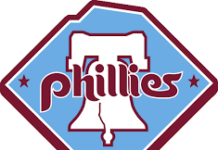Philadelphia’s new tax on sweetened beverages took effect on January 1, 2017. Although known as the “soda tax,” it actually taxes any drink that contains added sugar or an artificial sugar substitute. Distributors pay 1.5 cents per beverage ounce, then pass the extra cost on to retailers. In turn, the retailers pass the cost on to customers.
The Soda Tax Law is Controversial
Philadelphia city officials instituted the tax on sweetened beverages to raise money for children’s education. The mayor has said the tax was important to help lift Philadelphia citizens out of poverty. The tax was supposed to provide funding for pre-schools and community schools and for rebuilding community centers and parks.
People who support the tax say that sweetened beverages are unhealthy and have contributed to the rise of obesity, diabetes and other related health problems. They hope the tax will encourage people to buy healthier beverages for themselves and their children.
Opponents of the tax say it has hurt local businesses that have seen their sales of beverages decline. They say it also hurts consumers who, in effect, have to pay a double tax because they are already paying sales taxes on beverages. Union leaders representing beverage bottlers and drivers say that workers are losing their jobs.
How the Soda Tax Hurts Consumers
Although consumers do not pay the soda tax directly, they have to pay for it in increased costs, as the tax on distributors gets passed down the line to them. The increased cost can be substantial for consumers. For example, a pack of eight bottles of sweetened sports drinks with a before-tax price of $5.99 zooms up to $8.39 when the tax on sweetened beverages and the sales tax are added in.
Many Philadelphia consumers have reacted to the tax by deciding to do their beverage shopping elsewhere. People with cars have flocked to stores in the city’s suburbs, which don’t charge the tax. Many of these consumers ended up doing the rest of their grocery shopping there as well, causing Philadelphia stores to lose even more business.
Unfortunately, the tax hits hardest on the people who are least able to afford it. Low-income Philadelphians are less likely to have cars than more affluent city dwellers. Without cars, they are unable to shop in the suburbs and have to buy their beverages within the city and pay the tax.
For more information find .
The Tax Hurts Philadelphia Businesses
The amount of sweetened beverages sold within Philadelphia has gone way down. Mom-and-pop stores have taken a big hit on their sales. All aspects of the beverage business in Philadelphia have seen their income go down, and jobs have been lost.
The City’s Projections of Soda Tax Revenue Were Wrong
The city officials who created the tax thought that it would bring more money to the city government that the city could use for education and community centers. However, their projections were wrong. The tax brought in less money than they expected. This created an additional problem because officials had already allocated the expected revenue in the city’s budget. Now the budget is facing a shortfall.
Legal Challenges to the Soda Tax
There have been two rulings so far in favor of the soda tax, one in the Pennsylvania Commonwealth Court and the other in the Philadelphia County Court of Common Pleas. Both of these lower courts ruled that the tax was legal.
The beverage industry, however, was not in a mood to accept those decisions. On July 13, 2017, the American Beverage Association, an industry group, filed a petition to the Pennsylvania State Supreme Court appealing the decision of the Commonwealth Court. Industry lawyers argued that the lower court rulings were not in agreement with higher court precedents.
Whatever the State Supreme Court decides will have a wide-ranging effect throughout the country. Other cities that are thinking of instituting similar laws will be looking to the Pennsylvania Court to see what its ruling will be.
 Karl Heideck is a Philadelphia-based attorney whose work focuses on litigation, compliance and risk management review. He has more than 10 years of legal experience. He developed his litigation skills as an associate at Conrad O’Brien and through his work at Pepper Hamilton LLP. Karl Heideck is also highly skilled in legal writing and research, employment law and corporate law. He has a bachelor’s degree from and a law degree from Temple University’s James E. Beasley School of Law.
Karl Heideck is a Philadelphia-based attorney whose work focuses on litigation, compliance and risk management review. He has more than 10 years of legal experience. He developed his litigation skills as an associate at Conrad O’Brien and through his work at Pepper Hamilton LLP. Karl Heideck is also highly skilled in legal writing and research, employment law and corporate law. He has a bachelor’s degree from and a law degree from Temple University’s James E. Beasley School of Law.
Karl Heideck has a and communicating his knowledge to others. He runs a blog that explains legal news for a general, non-technical audience. Karl Heideck is also well known in the local community for writing a guide for small businesses, explaining what they need to know about Pennsylvania employment law. He is also the author of a helpful guide for law students and beginning lawyers that shows what they should do to have a successful legal career.
More Legal Analysis by Karl Heideck
Karl Heideck Explains the Lawsuit by Philadelphia Against Wells Fargo
Karl Heideck Analyzes Why Judge Won’t Halt Philadelphia’s New Salary History Law
















